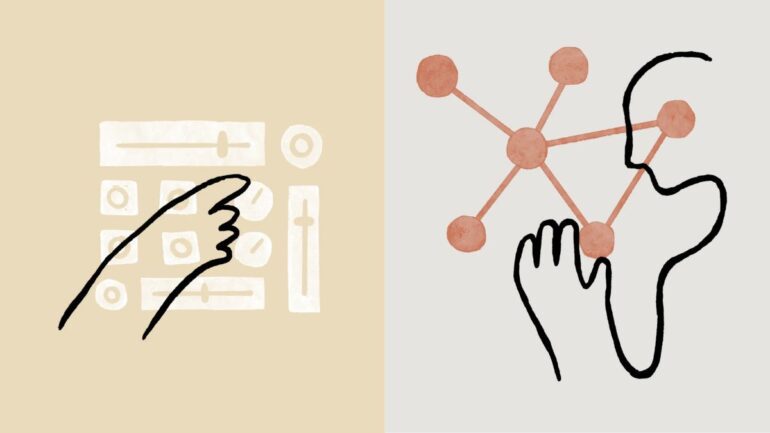TL;DR:
- Anthropic, the $4.1 billion OpenAI rival, introduces Claude 2, its new AI chatbot, to the public.
- Claude 2 marks Anthropic’s entry into the consumer market after rigorous testing with prominent businesses.
- The chatbot’s safety and performance improvements make it a robust and reliable choice.
- Anthropic plans to expand Claude 2’s availability in the U.S. and U.K. with further expansion in the future.
- The market for AI chatbots is growing rapidly, and Anthropic’s investment positions them well to succeed.
Main AI News:
Anthropic, the OpenAI competitor with a staggering valuation of $4.1 billion, is making waves in the artificial intelligence (AI) industry once again. The company has unveiled its latest creation, Claude 2, a cutting-edge AI chatbot that promises to redefine the way we interact with technology. Anthropic, backed by industry giants such as Google, Salesforce, and Zoom, has invested heavily in developing this advanced chatbot to stay on par with the likes of Microsoft-backed OpenAI and Google.
Claude 2 marks Anthropic’s first foray into the consumer market, following a rigorous testing phase involving prominent businesses like Slack, Notion, and Quora. This debut has garnered immense anticipation, with over 350,000 eager individuals eagerly awaiting access to Claude’s application programming interface (API) and consumer offering. Anthropic’s co-founder, Daniela Amodei, expressed her excitement, emphasizing that Claude 2 is the safest iteration thus far.
Initially, Claude 2 will only be accessible to users in the United States and the United Kingdom. However, Anthropic has plans to expand its availability to a broader audience in the coming months, enabling more individuals to experience the capabilities of this groundbreaking chatbot. Since OpenAI introduced ChatGPT to the public, the potential of generative AI chatbots has captured the attention of the tech world. These chatbots, armed with powerful AI algorithms, engage in sophisticated and conversational responses to text prompts. Despite concerns about bias propagation, this technology has already found applications in schools, online travel, healthcare, and online advertising.
OpenAI’s recent release of GPT-4, a significant update to the underlying technology behind ChatGPT, further solidifies the rising prominence of generative AI chatbots. OpenAI allowed ChatGPT to browse the internet, expanding its knowledge beyond the limitations of its 2021 training data cutoff. However, due to problematic usage, such as bypassing paywalls, OpenAI subsequently disabled the chatbot’s internet browsing ability. Google also entered the chatbot race with its competitor, Bard, enhancing its math and coding skills and integrating the AI service into various products.
Anthropic aims to carve its own path in this landscape of fierce competition. The company claims that Claude 2 has an impressive summarization capacity of approximately 75,000 words, equivalent to the length of a book. Users can input vast data sets and request summaries in the form of memos, letters, or stories. In contrast, ChatGPT can handle only about 3,000 words. Daniela Amodei revealed that Anthropic dedicated at least two months and employed a team of 30 to 35 people directly working on the AI model, with a total of 150 individuals supporting the project. With the market growing rapidly, Amodei believes there is ample room for multiple players to succeed.
From a business perspective, the current landscape is unprecedented due to the overwhelming demand for large language models. However, Amodei acknowledges the challenges that lie ahead for Anthropic and the industry as a whole. One persisting problem is the tendency for AI chatbots to generate incorrect answers, often referred to as “hallucinations.” While Claude 2 boasts notable improvements in performance, no language model is entirely immune to these challenges.
Anthropic’s accomplishments have not gone unnoticed by influential figures. In May, the company was among the select few invited to a White House meeting with Vice President Kamala Harris, focusing on responsible AI development. Other attendees included Google parent Alphabet, Microsoft, and OpenAI. In the same month, Anthropic secured $450 million in funding, following a previous financing round in March that valued the company at $4.1 billion.
Amodei shed light on some tangible enhancements in Claude 2 compared to its predecessor. The new chatbot achieved a remarkable score of 76.5% in the Bar exam’s multiple-choice section, up from 73%. Additionally, in a Python coding test, Claude 2’s score improved to 71%, a significant leap from its prior iteration’s 56%. In terms of safety, the upgraded chatbot demonstrated a twofold improvement in delivering “harmless responses,” as reported in a blog post. However, it is essential to note that the red team safety evaluation was conducted internally.
Despite the advancements exhibited by Claude 2, Amodei remains cognizant of the obstacles that lie ahead. The prevalence of unknown challenges and the inherent limitations of language models persist. While no language model can achieve perfect immunity from “hallucinations,” Claude 2 is certainly pushing the boundaries of what AI chatbots can accomplish. With its remarkable potential, Anthropic is poised to make a significant impact in this rapidly evolving industry.
Conclusion:
Anthropic’s debut of Claude 2, their advanced AI chatbot, signifies their commitment to keeping pace with OpenAI and Google in the rapidly expanding market. With its robust safety measures and improved performance, Claude 2 has the potential to redefine the way individuals and businesses interact with chatbot technology. Anthropic’s strategic investment and focus on addressing industry challenges position them favorably in a market that continues to experience high demand for large language models.

